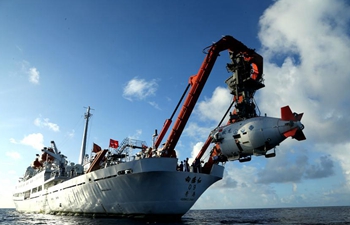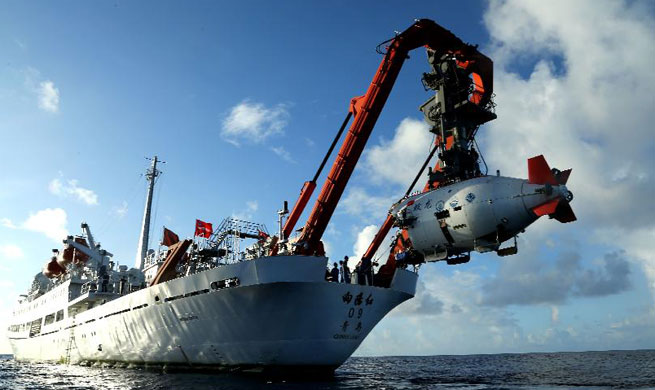by Peter Mutai
NAIROBI, June 1 (Xinhua) -- The UN Food and Agriculture Organization (FAO) assured Thursday that tilapia from Lake Victoria are safe for consumption amid spread of a highly contagious disease among the farmed and wild fish species.
FAO Kenya Country Coordinator Gabriel Rugalema said that natural tilapia fish stocks in Lake Victoria have sufficient resistance to survive the virus.
"The virus only affects farmed tilapia where it is spread by birds flying from one pond to the other," Rugalema told Xinhua in Nairobi.
His remarks came amid report that a deadly fish disease known as Tilapia Lake Virus (TiLV) has been confirmed in five countries on three continents, posing a great threat to global food security and nutrition.
The countries are Colombia, Ecuador, Egypt, Israel and Thailand. FAO said that though not a human health risk, TiLV can ruin infected tilapia populations, the world's most important fish for human consumption.
Rugalema said that fingerling in the farmers ponds are also capable of spreading the virus in case the virus occurs in their farms. "There is no need of panicking since Kenyan tilapia from Lake Victoria is free from the virus," he added.
The FAO alert cautions all tilapia-producing countries to be vigilant, and follow aquatic animal-health code protocols of the World Organization for Animal Health (OIE) when trading in the fish variety.
Rugalema said that FAO experts are alert and are monitoring the situation in collaboration with governments and will assist member countries to deal with the virus.
"They should initiate an active surveillance program to determine the presence or absence of TiLV, the geographic extent of the infection and identify risk factors that may help contain it," it warned.
Currently, active TiLV surveillance is being conducted in China, India, Indonesia and it is planned to start in the Philippines.
Tilapia is the mainstay of communities living around Lake Victoria in East Africa where the majority relies on it as a delicacy while others earn a living from it through trade.
Tilapias are the second most important aquaculture species in volume terms providing food, jobs and domestic and export earnings for millions of people, including many smallholders.
Their affordable price, omnivorous diet, tolerance to high-density farming methods and usually strong resistance to disease makes them an important protein source, especially in developing countries and for poorer consumers.

















